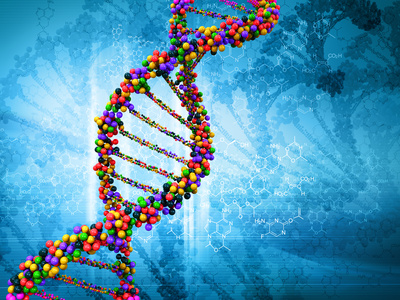Depression – A Whole-Body Disorder

People tend to think of depression as a mental illness, but new research shows that depression and other psychological disorders affect the body as much as the mind. Researchers are starting to view depression as a whole-body, rather than strictly brain-based illness.
Research has established that young people who suffer from long-term psychological stress, depression, or PTSD tend to develop physical conditions that we typically associate with older people: stroke, dementia, heart disease, and diabetes. Currently, scientists are trying to figure out what might be going on inside these people on a cellular level. What are they finding? The same changes to chromosomes that occur in people as they age can also be found in people dealing with major stress and depression.
Before we dive into the findings, let’s do a basic genetics 101 review. What exactly is a chromosome? It’s a threadlike structure of DNA found in the nucleus of cells; it carries our genetic information in the form of genes. The phenomenon scientists have discovered (similar chromosomal changes in older people as people suffering from mental health issues) is termed “accelerated aging,” and it’s transforming the way people in the mental health field view depression. They’re starting to think of it as a systemic illness rather than a mental illness.
Let’s look into the idea of “accelerated aging” in detail. This is not a new notion. About 20 years ago, researchers at Duke University found that brain scans of older people with depression showed much faster age-related loss of volume in the brain compared to those individuals who were not depressed (for reasons beyond unhealthy behaviors such as smoking, poor diet, and lack of exercise).
Recently, scientists have been focusing on telomeres. Genetics 102 review: a telomere is a structure located at the end of a chromosome, and its main job is to protect the chromosome from deterioration or from fusing with neighboring chromosomes. Telomeres shorten as people age, and shortened telomeres are related to an increased risk of disease and mortality. A study at the University of California, San Francisco, found that shorter telomeres were associated with depression, childhood trauma, and chronic PTSD in adults (the shortened length was equivalent to about 4.5 years of accelerated aging). Another study found similar results: shortened telomere length was associated with depression and greater perceived life stress. Additionally, a research study at the University of California, San Francisco, found that pessimism correlated with shorter telomeres.
Regardless of where the research goes from here, there is a wealth of information that reveals depression, chronic stress, and PTSD are not simply brain-based illnesses: they have clear, specific effects on the body. The impact of mental health disorders is not confined solely to the mind. These are complex problems with far-reaching physical and cellular effects.
Treating depression gives people an obvious boost in mood and alleviates feelings of isolation, hopelessness, and despair. We now know that treating depression doesn’t just help them feel better mentally and emotionally, it can also help protect them physically from a myriad of health problems down the road.
Olivia Roat is a reporter for GoStrengths.com, a site dedicated to eradicating youth depression.